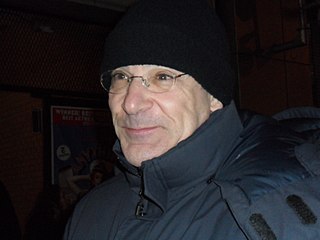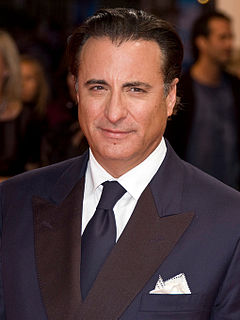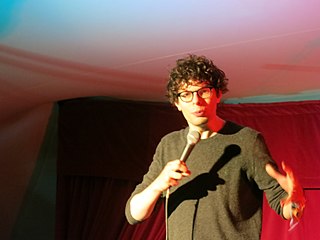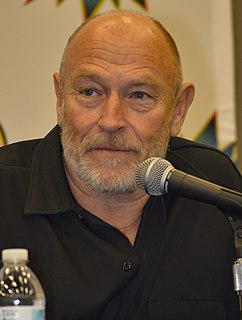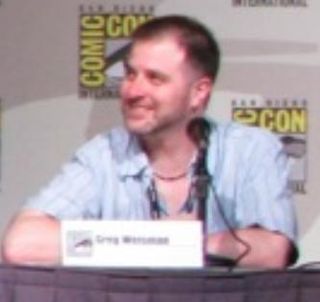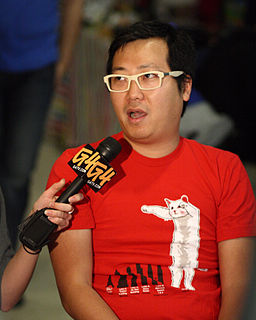A Quote by Mandy Patinkin
Making Homeland series is not improvisational comedy theater, but it is improvisation. We might get a call that morning, while we're doing something, and the change goes in that is something that just happened an hour ago, in the world.
Related Quotes
When doing a series, I look for something that has an idea you can think about, something that I'm noticing and aware of and thinking about, because when you're doing a series, you think about more than just jokes... you know, when you're doing a comedy, you think about what's going to reflect people's experiences, in a way.
I started in comedy when I first started as an actor on stage and doing improvisational theater and stuff like that. So a lot of people who know me know that sort of side of me. But I got the roles that I got as an young actor kind of steered me in a different direction, which were, at times, darker characters. And so comedy was not something that came easy for people to think of my in those terms.
Comedy is very interesting because you can very quickly cross into dangerous territory. I mean look at what happened, unfortunately, (in) Paris a couple of weeks ago. They were making comics - which were really satire - but it offended people. I'm not saying the reaction was justified but there's definitely a line when you're doing comedy or satire and how it might affect somebody. That's the thing you have to watch and I think you have to be respectful of it.
I came to the conclusion that most people in America would really like to be able to get a job where they think they're doing something noble and nice and good and it isn't just for the money. But the reason they hate what they call the cultural elite is that they see it as a class that's grabbed all the jobs where you can get paid to do something that isn't just for the money - if it's art, if it's charity, if it's intellectual, if it's political, whatever it might be.
[on making the transition from the comedy "Mary Tyler Moore" (1970) to its dramatic spin-off series "Lou Grant" (1977)] We were really worried about changing over from a three-camera, half-hour comedy to a one-camera, full-hour drama. The audience wasn't ready for the switch - even CBS billed us in their promos as a comedy. In fact, the whole thing was impossible. But we didn't know that.
